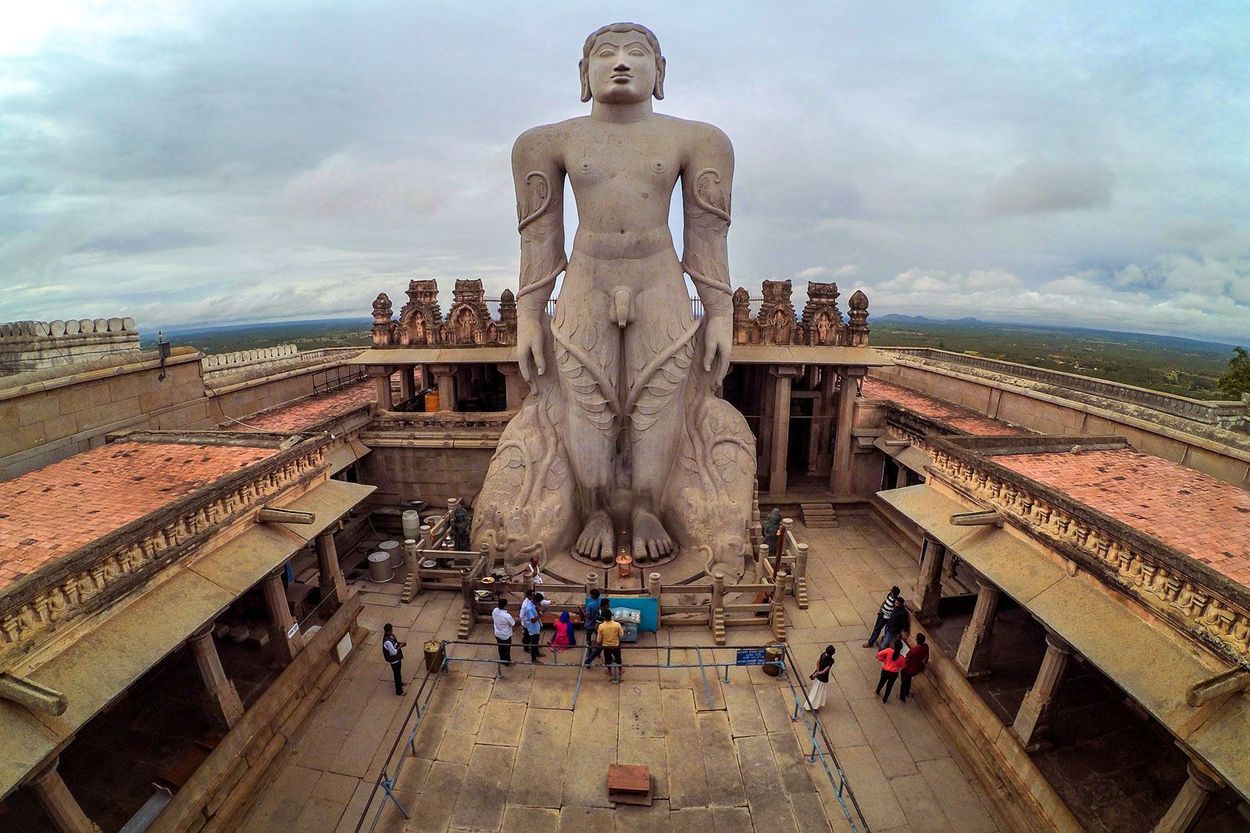
Jainism is one of the oldest religions in the world, with roots tracing back to ancient India. It emphasizes non-violence, truth, and asceticism. But what makes Jainism truly unique? Jainism teaches that every living being has a soul and that all souls are equal. This belief leads to a lifestyle of extreme non-violence, or ahimsa, where followers avoid harming even the smallest creatures. Jains also practice strict vegetarianism and often engage in fasting. Their temples, adorned with intricate carvings, reflect their devotion to spiritual purity. Curious about more? Here are 33 fascinating facts about Jainism that will deepen your understanding of this profound faith.
Origins and History of Jainism
Jainism is one of the oldest religions in the world, with a rich history and profound teachings. Let's explore some fascinating facts about its origins and historical development.
- Jainism originated in India around the 6th century BCE.
- The religion was founded by Mahavira, the 24th Tirthankara.
- Mahavira was born in 599 BCE in Bihar, India.
- Jainism predates Buddhism, another major Indian religion.
- The religion's name comes from the Sanskrit word "Jina," meaning "conqueror."
Core Beliefs and Principles
Jainism is known for its unique and strict principles. These beliefs shape the daily lives of its followers and distinguish it from other religions.
- Ahimsa, or non-violence, is the most important principle in Jainism.
- Jains believe in karma and reincarnation.
- The ultimate goal is to achieve Moksha, or liberation from the cycle of birth and death.
- Jains practice strict vegetarianism to avoid harming living beings.
- Aparigraha, or non-possessiveness, encourages Jains to live simply and avoid materialism.
Practices and Rituals
Jain rituals and practices are deeply symbolic and reflect their core beliefs. These practices help Jains maintain spiritual discipline and purity.
- Jains perform daily rituals called "Samayika" to cultivate mindfulness and self-discipline.
- Paryushana is the most important Jain festival, lasting 8-10 days.
- During Paryushana, Jains fast and engage in intense spiritual practices.
- Jains often practice meditation and yoga to achieve mental clarity and spiritual growth.
- Many Jains take vows of celibacy and renunciation to deepen their spiritual practice.
Sacred Texts and Literature
Jainism has a rich literary tradition, with numerous sacred texts that guide its followers. These texts provide insights into Jain philosophy and ethics.
- The Agamas are the primary scriptures of Jainism.
- The Tattvartha Sutra is a key philosophical text in Jainism.
- Jain literature includes a vast collection of commentaries, stories, and hymns.
- The Kalpa Sutra is an important text that details the lives of the Tirthankaras.
- Jain texts are written in various languages, including Prakrit, Sanskrit, and Tamil.
Jain Symbols and Art
Jainism has a rich tradition of symbolism and art, which reflects its spiritual teachings and cultural heritage.
- The Jain symbol, or "Prateek Chihna," includes a hand with a wheel on the palm, symbolizing non-violence and the cycle of reincarnation.
- The Swastika is a sacred symbol in Jainism, representing the four states of existence.
- Jain temples, known as "Derasar" or "Basadi," are renowned for their intricate architecture and carvings.
- The statue of Bahubali, a revered Jain figure, is one of the tallest monolithic statues in the world.
- Jain art often depicts the Tirthankaras in meditative postures.
Jain Communities and Demographics
Jainism has a significant following, primarily in India, but also in various parts of the world. The Jain community is known for its contributions to society and culture.
- There are approximately 4-5 million Jains worldwide.
- The majority of Jains live in India, particularly in the states of Gujarat, Rajasthan, and Maharashtra.
- Jain communities are also found in the United States, Canada, the United Kingdom, and Kenya.
- Jains have a strong presence in business and industry, particularly in India.
- The Jain diaspora has established numerous temples and cultural centers around the world.
Contributions to Society and Culture
Jains have made significant contributions to various fields, including philosophy, science, and the arts. Their influence extends beyond their religious community.
- Jain scholars have made important contributions to Indian philosophy and mathematics.
- The concept of Ahimsa influenced Mahatma Gandhi and the Indian independence movement.
- Jain art and architecture have enriched India's cultural heritage.
Jainism's Lasting Impact
Jainism's rich history and unique beliefs have left a significant mark on the world. Its principles of non-violence, truth, and asceticism offer a different perspective on life and spirituality. The religion's emphasis on compassion and respect for all living beings resonates with many, even outside the Jain community. Jainism's influence can be seen in various aspects of culture, philosophy, and even environmentalism.
Understanding these 33 facts about Jainism provides a glimpse into a religion that values peace and ethical living. Whether you're curious about its origins, practices, or contributions to society, Jainism offers valuable lessons. By exploring these facts, you gain a deeper appreciation for a faith that has quietly shaped human thought and behavior for centuries. Jainism's timeless teachings continue to inspire and guide those seeking a path of non-violence and spiritual growth.
Was this page helpful?
Our commitment to delivering trustworthy and engaging content is at the heart of what we do. Each fact on our site is contributed by real users like you, bringing a wealth of diverse insights and information. To ensure the highest standards of accuracy and reliability, our dedicated editors meticulously review each submission. This process guarantees that the facts we share are not only fascinating but also credible. Trust in our commitment to quality and authenticity as you explore and learn with us.


